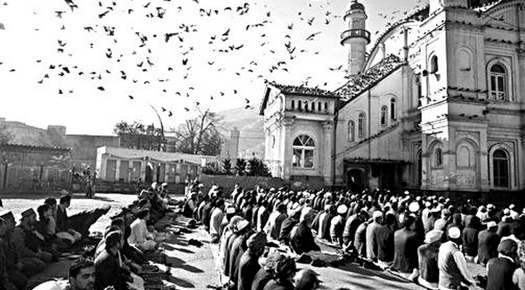
Residents of Kabul have said that their religiosity has increased noticeably of late with more and more individuals visiting the mosque and urging their wives and daughters to wear the veil. According to most of these residents, people in Kabul did not care much about their religious duties in the past, particularly under the governance of the People’s Democratic Party of Afghanistan that headed the nation from 1357 to 1371. However, as the concept of jihad started to spread across the country over time, more people tried to find solace in Islam.
Eighty-one-year old Ghafar, who lives in Zaman Khan, said that Kabul residents paid much less attention to religion and negated a lot of Islamic teachings during PDPA’s governance. While some people refused to fast during the holy month of Ramadan and organized lavish parties in public spaces, women opted not to wear the hijab and wore short skirts and stockings instead.
“Alhamdullillah today most of Kabul women wear hijab and even attend Quran recitations during Tarawih prayers,” the elderly man said.
He also said that under the current administration, as many as 10,000 people, including women, partook in a complete Quran recitation at Abdur Rehman Khan mosque during Ramadan this year. “It showed people’s love for their religion,” he said.
Ghafar said that only a few PDPA activists visit the mosque, as police officials often look upon them with suspicion and have in the past accused them of being involved in mujahidin.
“One of my father’s friends, who would always be busy worshiping in a mosque, was captured by police in that era and was never seen again,” he added.
Religious scholar and political analyst Mohammad Hassan Haqyar explained that even though some jihadists have brought a bad name to jihad, the holy war from centuries ago prevented people from carrying out immoral, un-Islamic acts while rescuing the country from its enemies. He also praised the country’s mujahidin government, saying that under its administration, children have been encouraged to attend madrasas and learn about Islam.
“Also now, many Afghan students graduate from the world’s top Islamic universities. It shows people’s interest in Islam,” he said.
Another religious scholar, Shams Rehman Frotan, said that when the country was under communist regime, many women behaved in an un-Islamic manner and refused to wear the hijab.
“Despite the cultural aggression through the television, it is hopeful that most of our women wear hijab and people fast and attend Tarawhi prayers,” he said.
He explained how many jihadists in Afghanistan waged war against the then communist government and arranged for mass migrations to neighbouring Islamic countries so people could have access to madrasas and abide by Islamic values. Such social changes, Frotan believes, is what has led to the strong sense of religiosity among Kabul’s residents today.
“I wish the jihadi leaders had not clashed for their personal interests after the victory of jihad. I wish they had not defamed the name of jihad by involving in differences. I believe all these leaders will face justice one day,” he said.
Frotan also urged the government to monitor television channels that promote foreign culture, as he believes that such shows could prove to be detrimental to future generations.
Maulvi Fazal Karim Sooraji, director of mosques, Ministry of Hajj and Religious Affairs, expressed his happiness over the fact that the locals’ love for Islam has grown by leaps and bounds over the last few years. According to Sooraji, Kabul currently has 1,800 central mosques and 1,200 non-central mosques that are attended by approximately 1,000 to 1,500 people for Quran recitations. He also said that his ministry is planning to build a madrasa inside every mosque so that more children have access to Islamic lessons.
Photo Credits: Fox News
